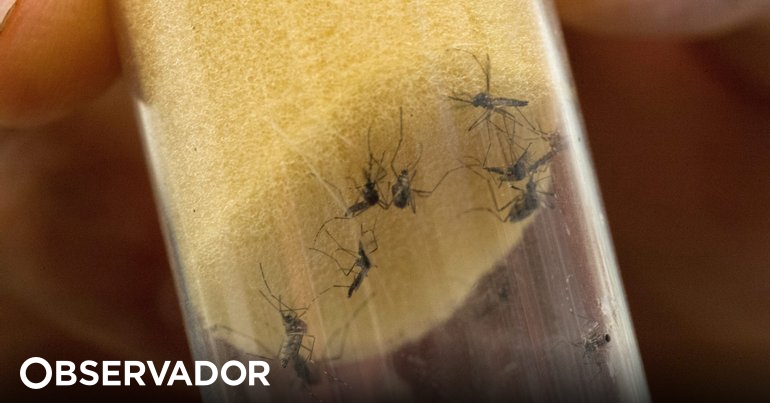On Wednesday, Director-General of the World Health Organization, Tedros Adhanom, described the outbreak of dengue fever in Brazil as a “major challenge” and linked it to the El Niño climate phenomenon.
“The El Niño phenomenon has fueled the current dengue outbreak,” Adhanom said during an event in Brasilia, explaining that the rise in cases in the South American country is part of the global expansion of the disease that has killed 5,000 people worldwide by 2023.
El Niño is a natural climate phenomenon associated with rising surface temperatures in the central and eastern tropical Pacific Ocean, but it has impacts around the world.
The effects of this phenomenon are enhanced by rising temperatures in the Americas, which ultimately facilitates the reproduction of Aedes aegypti mosquitoes. Dengue transmitters.
According to the Director-General of the World Health Organization, who has been on a three-day visit to Brazil since Monday, “all regions, except Europe, are affected” by the wave of dengue fever, which is transmitted by mosquitoes and causes high temperatures and severe infections. Muscle pain, among other symptoms.
At the same time, Adhanom congratulated the Brazilian government for its response to the outbreak Introducing the dengue vaccine into public health system protocols.
“The outbreak highlights the need to strengthen the healthcare system,” he said, before calling for a “comprehensive response that puts people at the center” of care.
Brazilian President Lula da Silva and the Director-General of the World Health Organization met on Monday to discuss a possible partnership in the production of a dengue vaccine.
The next day, Brazil's health minister called on the entire country to unite “against dengue”, at a time when cases will increase dramatically in 2024, after 2023 recorded unprecedented numbers.
Rio de Janeiro declares a state of health emergency due to dengue fever
Data from the Brazilian Ministry of Health indicate that the country has registered 345,235 probable cases of dengue fever this year, with 36 deaths and 234 more under investigation. The number of cases tripled between January 21 and 27 compared to the same period last year. The states of Acre, Minas Gerais and Goiás, in addition to the Federal District, declared a state of public health emergency.
In 2023, the South American country recorded more than 1.6 million cases of the disease, more than a fifth of all reported cases in the world, and 1,094 deaths, a historic record.
The Brazilian Minister of Health also stated that she had already transferred 280 million euros to states and municipalities to work on prevention and medical care measures. He explained that with regard to the vaccines provided by the Public Health Authority, they will be presented gradually, “due to the limited number of doses produced by the manufacturing laboratory.”
Brazil will begin a public vaccination campaign against dengue fever this month. The country has already released a list of about 500 cities that will receive the dengue vaccine, which should initially prioritize children and teenagers between the ages of 10 and 14 because they are among the public with the highest number of dengue hospitalizations. . illness.
Brazil expects to receive up to 6.2 million doses of the Japanese dengue vaccine in 2024. But since it is a vaccination that requires two doses of the vaccine, this amount covers only 3.1 million people and is insufficient to cope with the current explosion in cases.

“Wannabe internet buff. Future teen idol. Hardcore zombie guru. Gamer. Avid creator. Entrepreneur. Bacon ninja.”

